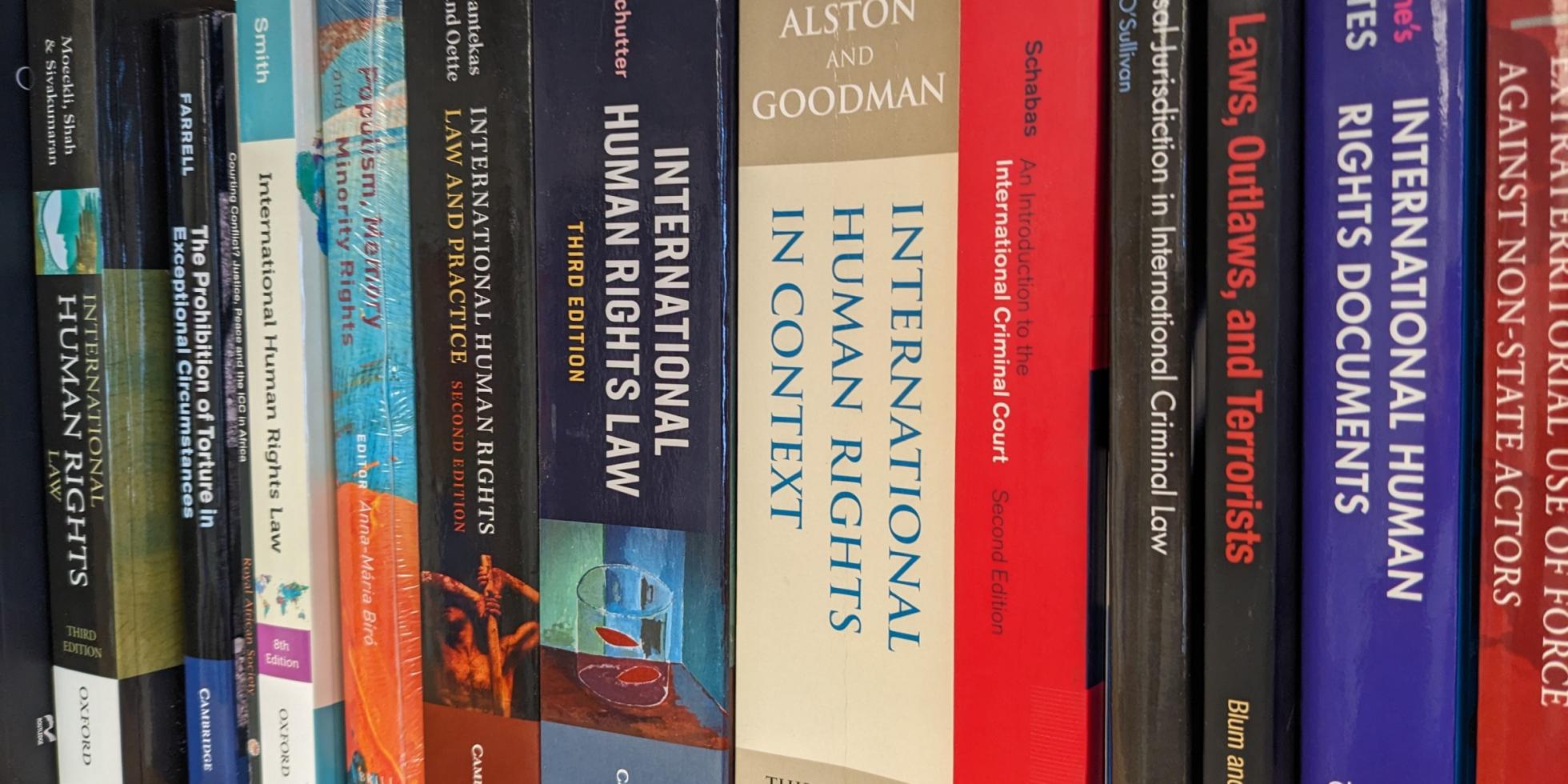The virtual human rights library brings together resources from multiple libraries and information services, both internal and external, to create an online hub dedicated to the study of human rights. This curation is unique in its interdisciplinary concerns and focuses on writings and research from social sciences, humanities, and law.
The virtual library is continually updated with the latest academic research in issue areas, as well as with relevant films, recorded conversations, and other forms of media.
Searchable Database
Click into the dropdowns to select the disciplines, keywords, and media type for your search, and then hit "Apply."
Pierre Legrand "Au lieu de soi," in Comparer les droits, résolument (Presses Universitaires de France, 2009), pp. 11-37
Stefan-Ludwig Hoffmann Human Rights in the Twentieth Century (Cambridge University Press, 2010)
Has there always been an inalienable "right to have rights" as part of the human condition, as Hannah Arendt famously argued? The contributions to this volume examine how human rights came to define the bounds of universal morality in the...
Paul Ricoeur Le Juste (Esprit, 1995)
In recent years, I have been led to think that the juridical - understood in the guise of the judiciary, with its written laws, its tribunals, its judges, and the pronouncement of the sentence in which the law is said...
Martti Koskenniemi "Occupied Zone—'A Zone of Reasonableness'?" Israel Law Review Vol. 41, no. 1-2 (2008), pp. 13-40
The vocabulary of “reasonableness” invokes a wide margin of discretion that is often needed to temper the excessive rigour of legal rules and to deal with the inevitable problems of over- and under-inclusion associated with application of formal law to individual...
Aliza Luft "The Moral Career of the Genocide Perpetrator: Cognition, Emotions, and Dehumanization as a Consequence, Not a Cause, of Violence." Sociological Theory (2023): 07352751231203716.
Scholars have long argued that dehumanization causes violence. However, others have recently argued that those who harm do so because they feel pressured or view violence as justified. Examining the Rwandan genocide, this article contends that contradictory theories of dehumanization...
Bryan Turner Vulnerability and Human Rights (Penn State University Press, 2015)
the mass violence of the twentieth century’s two world wars—followed more recently by decentralized and privatized warfare, manifested in terrorism, ethnic cleansing, and other localized forms of killing—has led to a heightened awareness of human beings’ vulnerability and the precarious...
Nicole Fox, Hollie Nyseth Brehm "“I decided to save them”: Factors that shaped participation in rescue efforts during genocide in Rwanda." Social Forces 96, no. 4 (2018): 1625-1648.
Collective action scholars have long examined why people choose to participate in social movements. This article argues that this body of scholarship can be productively applied to understanding rescue efforts during genocide, which have typically been associated with altruism and...
Please Note:
While the Virtual Library is now live for use, we are still working to update its contents and improve its functionality.
It is usable by all visitors, but the hyperlinks to materials listed are for UChicago community members with a CNet ID and password.
Please direct feedback and suggestions to Kathleen Cavanaugh.
For technical assistance, email pozenhumanrights @ uchicago.edu.

